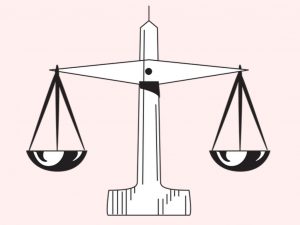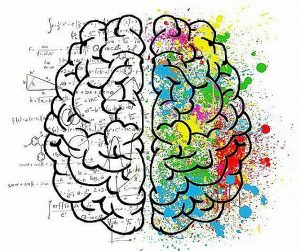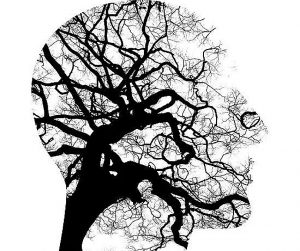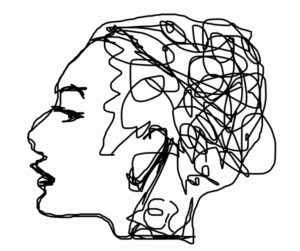Relationship Between Psychology and Law: Despite the fact that law and psychology are two separate areas, they have a number of similarities. The study of mental factors that impact human behavior is referred to as psychology. However, in the legal world, the application of psychology deals with determining various factors such as the witness’ credibility, and importantly, the type of punishment that should be applied because it is determined by several factors such as the mental anguish caused to the victim in rape cases, accidents caused in motor vehicle accidents, and various mitigating and aggravating factors that led the accused to commit a crime.

Both fields construct rules about what drives people’s conduct, with psychology’s purpose being to explain it and law’s goal being to control it. Those interested in studying human behavior should not limit themselves to occupations that appear unrelated to psychology at first glance. Psychology and law integrate resources, research methodologies, and findings from social psychology, cognitive psychology, developmental psychology, and clinical psychology to examine legal assumptions and evaluate if they are correct or not, as well as discuss ways to improve them.
Overall, the field of psychology and law looks at legal assumptions, puts them to the test to see if they function, and discusses how to improve them using tools, research techniques, and findings from social, cognitive, developmental, and clinical psychology. We’ll talk about the connections between psychology and law in this article.
Recommended: Schools of thought in Law Explained
What Is The Meaning Of Psychology?
Psychology is described as a discipline that investigates the mental factors that influence human behavior. In a nutshell, it researches the human mind and how it influences human behavior. This encompasses qualities such as conative, cognitive, and emotional.

Psychological research examines both conscious and unconscious mental processes. Many items have been incorporated into the scope of psychology over time. It is useful in establishing the reliability of witnesses, and, most importantly, what punishment should be given to a person while bearing in mind his psychological state of mind in the legal sphere.
To some extent, psychology has begun to consider a criminal as a person suffering from a mental illness, implying that such individuals should not be punished but rather treated medically. As a result, there are several advantages and disadvantages of psychology in legal studies, for which it is sometimes praised and other times criticized. However, in this period, it has clearly become an important aspect of the judicial system.

Also see: Advantages and Disadvantages of Being an Entrepreneur
Relationship Between Psychology And Law
A legal system is vital for a society’s good functioning since it attempts to resolve several difficulties that exist in today’s society. Despite the fact that some legal authorities do not regard psychology to be a study important to law, it is because the law includes behavioral notions. The underlying assumptions of human nature are reflected in the legal rules, processes, and theories.
1. Decision Making: Psychology can help contemporary decision-makers make better decisions by providing more exact representations and portrayals of human perceptions and preferences.
2. Credibility: Because eyewitnesses are commonly known to be affected by or scared of the accused, it contributes to the verification of witness credibility.

Also see: How to Avoid Being Bored When You Have Nothing to Do
3. Verification: It can also help to reduce false admissions by employing peace models similar to those used by British cops.
4. Research: Psychological research covers a wide spectrum of issues that have legal and societal ramifications. It is founded on legal institutions and law’s scientific and psychological research, and it stresses legal psychology rather than clinically-oriented forensic psychology.
5. Justice: Passing verdicts that take into consideration the psychological aspects of the accused’s thinking ensure justice in the genuine sense.

Also see: Countries with the Best Justice system in the world 2022
Essential Specialties Of Psychology In Law
1. Legal System Psychology: Legal psychology is concerned with the use of cognitive and social concepts in the legal system. It is founded on legal empirical and psychological research, as well as legal structures. It differs from forensic psychology, which is based on a clinical approach to experimentation. The importance of legal psychology may be observed in a variety of ways in legal proceedings:
2. Research And Academics: Legal psychologists mostly perform empirical studies on newly popularized legal themes. They also serve as mentors, advising and guiding aspiring lawyers.
3. Advisory Role: Legal psychologists are frequently observed in courtrooms providing advice. They provide psychological advice to judges and other legal decision-makers in the matter at hand.

Recommended: How To Come Up With the Perfect Book Title: 11 Good Book Title Tips
4. Expert Witnesses: Despite their lack of formal training, legal psychologists are well-equipped to deal with legal concerns. They are beneficial in witness testimony. They also put eye witnesses memories to the test, while the forensic psychologist focuses on the defendant’s competency.
5. Advising On Trials: Legal psychologists are occasionally called upon to provide trial advisory services. When their knowledge is useful in a specific case, a psychologist who works as an academician may be brought in as a trial consultant. Trial consultants have a variety of responsibilities, including selecting jurors and conducting mock trials.
6. Making Policy And Providing Legislative Direction: The job of a legal psychologist is based on empirical study, and there are numerous times when regulations based on scientific research are required. As a result, they aid to state and national legislators during times of crisis.
Also see: Best Science Courses to study in the university 2022
7. Forensic Psychology: Forensic psychology is the study of crime and other legal issues through the lens of psychology. Forensic psychology is described by American psychologists as the use of clinical specializations in legal settings. Experts in forensic law assist in a variety of ways during court proceedings:
8. Evaluation Of One’s Mental State: Forensic psychology aids in the examination of a person’s mental state in relation to an insanity plea, which is a strategy used by persons to avoid execution or jail. As a result, forensic psychology may assist determine whether or not a person is suffering from a mental illness.
Also see: Best Things to Do During Holidays
9. Violence Prediction And Risk Mitigation: Forensic psychology may also assist determine whether or not a person has violent tendencies, as well as the potential harm that such a person might cause to himself or others. When an accused person is imprisoned or released, this approach is typically utilized.
10. Child Custody in Divorce Evaluation: The most important question and the hardest choice to make after a divorce is determining the custody of a kid. The child’s future is at risk. As a result, forensic psychologists examine the couple and, after assessing the circumstances, make recommendations to the court or jury on who should have custody of the kid.
11. Competency To Stand Trial: People who are mentally or physically unwell cannot withstand the trial process because it is too long and exhausting. As a result, forensic psychology aids in evaluating who can stand a trial and who should be transferred to a mental facility right away.
Recommended: Countries with the Most Beautiful Women in the world 2022
Final Note
There is a definite link between psychology and law, as well as forensic psychology, which is concerned with the application of psychological specialties to legal institutions and persons who come into touch with the law. Legal psychology is primarily concerned with applying experimental or research-oriented aspects of psychology to legal issues.
In actuality, educational programs are beginning to recognize the enormous overlap between psychology and law, as seen by the growing number of universities that offer a combined law and psychology degree. Psychologists are searching for methods to make the judicial system more effective.
Psychologists fill the space between the legal system and human behavior to demonstrate how they can influence how the legal system deals with individuals. Because it is still a new topic, conferences are conducted to encourage and mentor students by field leaders. This not only broadens one’s horizons, but it also teaches mankind to follow laws.
Conclusion
The concept of psychology, in conclusion, contributes to better laws and legal choices. Psychology is a framework that serves as the next great step in perfecting legal modifications with the use of legal and forensic psychology principles that aid in offering new dimensions to legal challenges while also providing solutions. As a result, psychology facilitates scientific implementation, resulting in greater victim justice.

Edeh Samuel Chukwuemeka, ACMC, is a lawyer and a certified mediator/conciliator in Nigeria. He is also a developer with knowledge in various programming languages. Samuel is determined to leverage his skills in technology, SEO, and legal practice to revolutionize the legal profession worldwide by creating web and mobile applications that simplify legal research. Sam is also passionate about educating and providing valuable information to people.